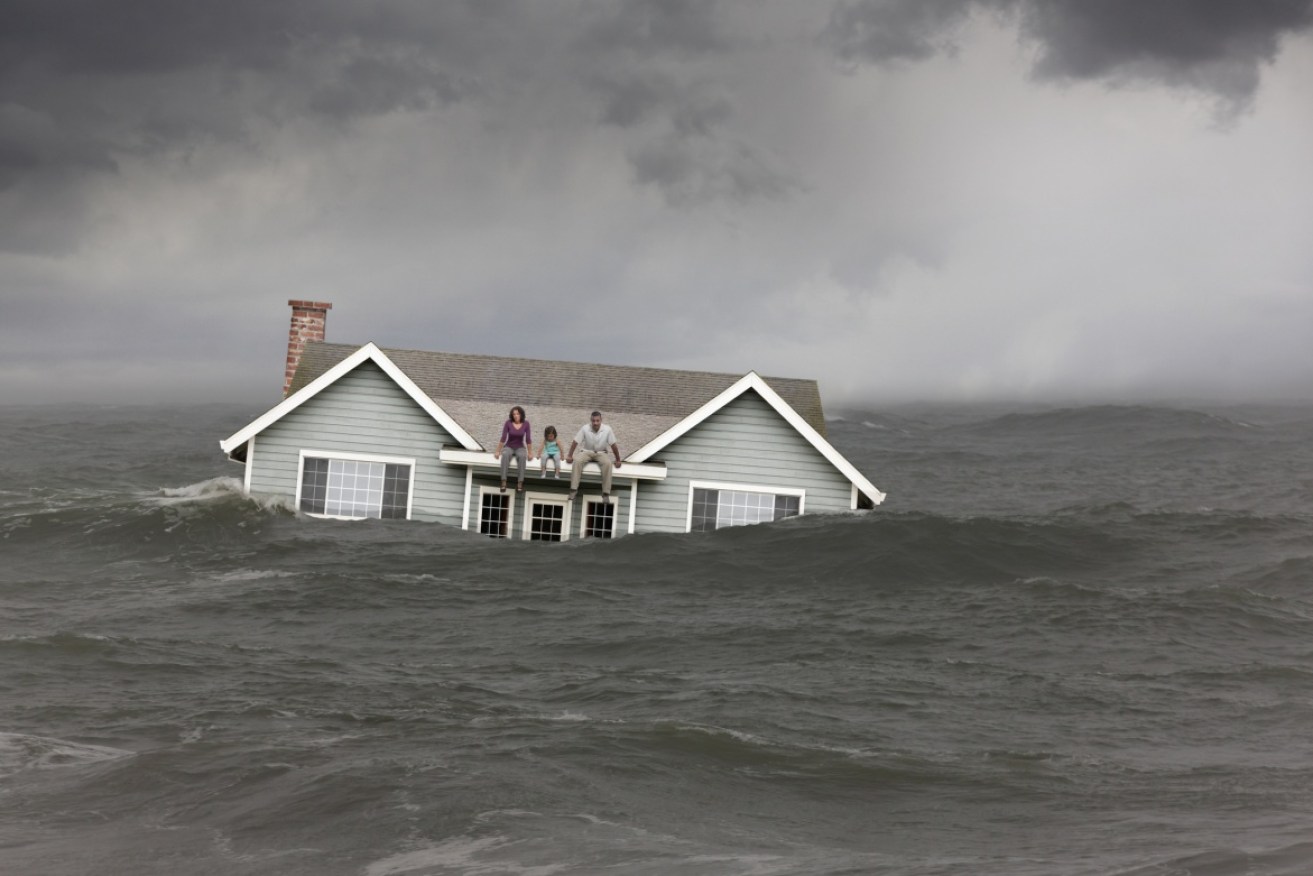The fear keeping first home buyers up at night


First home buyers have to face the fear of capital values ending up 'underwater'. Photo: Getty
With capital city home prices falling in the past two calendar months, first home buyers will be getting very nervous about getting ‘on the ladder’.
CoreLogic’s hedonic price index, which tracks prices of like-for-like dwellings, shows all capital cities in decline except Brisbane (no change) and Hobart (+1 per cent).
As the chart below shows, the biggest falls were in Sydney, which is now down 3.1 per cent since its peak last September.
Nobody knows for sure whether those falls will accelerate or return to growth, but CoreLogic is trying not to scare the horses – they see ‘slippage’, or prices ‘transitioning away from growth’.
It’s just a ‘stage in the cycle’, real estate agents will tell you, but what they won’t say is that at some point the growth of house prices over and above wages growth must end, and probably reverse.
Figures released by JP Morgan in January explain why.
In the run-up to the year 2000, national house prices were roughly three to four times household incomes, but grew sharply in the new millennium thanks to over-generous property tax breaks for investors.
They found something of a plateau at around six to seven times incomes around the time of the global financial crisis, but in recent years Sydney and Melbourne have rocketed up to be around 10 and 8.5 times household earnings, respectively.
So given recent price falls, the first question buyers have to ask themselves is whether we’re in a cyclical lull; coming to the end of a one-off structural shift in the relationship between wages and dwelling prices; or headed for a large price pull-back.
The two latter scenarios are what keep first home buyers awake at night, because having scraped together, say, $100,000 for a deposit, nobody wants to see the capital value of their purchase stagnate relative to wages, or fall.
On the other hand, the risk of price falls doesn’t necessarily mean that it’s crazy to enter the housing market.
That’s because there are two distinctly different ways to look at a home purchase – as a financial investment, or as a place to live.
Granted, they become less ‘distinct’ in the longer term if things don’t go well, because in retirement people want their largest asset to boost, not undermine, their personal finances. For first home buyers, though, that’s decades away.
Two lenses
If you view a home as a financial investment, it’s worth considering other investment options as the global economy leaves the era of low rates and high asset prices behind.
Broadly speaking there is a negative correlation between rising rates and asset prices, so if a young couple wants to ‘build wealth’, they may have to erase from their minds the fact that property was the preferred way to do that for decades.
The long house-price boom created huge ‘geared profits’, but we could now see the opposite – ‘geared losses’.
So if it’s early retirement you crave more than a ‘home of your own’, a financial adviser can help you decide which assets to hold and whether it’s wise to ‘gear up’ to buy them.
A floor under the market
The second way to look at the roof over your head is, well, as a roof.
Home ownership confers benefits that first home buyers may well value enough to risk large capital losses, at least in the medium term.
If you are able to stop seeing your home as a giant poker chip, the first question to ask is how stable your household income is likely to be in the years ahead – especially if the income disruptions of child-raising are on the cards.
Banks won’t forclose if you dip into negative equity, but they will if you can’t service your debt.
The second question to answer over, say, a 10-year horizon is how you would handle rate hikes.
Saul Eslake, former chief economist at ANZ and at the Bank of America Merrill Lynch, says he’d factor in an additional three percentage points “to be very conservative” or two percentage points to be “normally conservative”.
When all that is done, first home buyers can quite rationally buy a home – but just as a home.
The trick then is never to think about what investment returns you could have made elsewhere, or how much wealth that roof over your head has created or destroyed.








